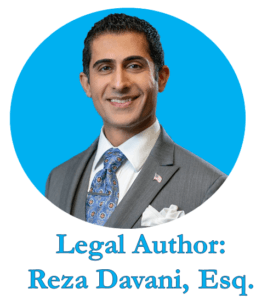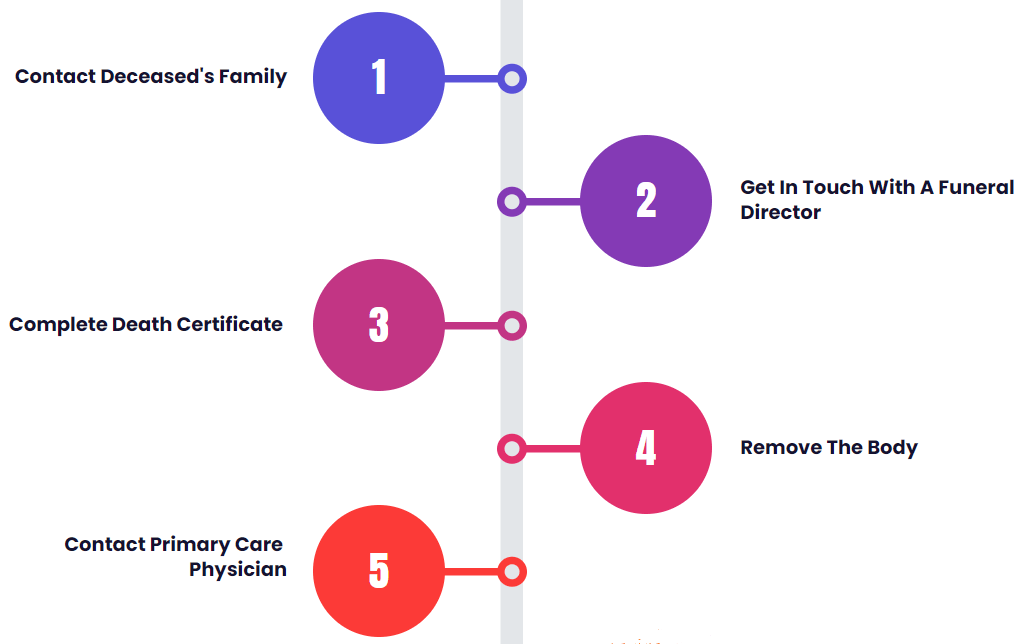Article Updated: March 10, 2022
What to Do When Someone Dies in A Nursing Home
There are two genuine parts to this:
◊ Procedural, how to handle the family member who passed away
◊ Legal, investigating whether the nursing home killed your loved one
I’ll walk you through the basics on both points below.
There are so many scenarios, however, that if the second point is a concern for you, I invite you to contact me. I’ll speak with you for free to let you know whether it’s a claim I can investigate (which, by the way, I cover 100% of the costs for and work on a pure contingency fee basis).
Clickable Table of Contents
Steps if Someone Dies in A Nursing Home
1 – Deaths In A Nursing Home
2 – What To Do When Someone Dies In A Nursing Home
3 – Final Steps To Take When Someone Dies In A Nursing Home
4 – Nursing Home Death Q&A
Resources
5 – Get Help With Your Nursing Home Death
6 – Supporting Literature, Citations & Research
7 – About the Author
8 – Legal Help in Maryland & Nationally
Deaths In A Nursing Home
Knowing what to do when someone dies in a nursing home is not common knowledge but nonetheless something you may be concerned with if your loved one is in a care facility.
Specific steps need to be taken when an individual passes away in a nursing home to ensure legal and health standards are being adhered to.
Steps involved in the post-death period of a loved one are not many, but the few that need to be followed, should happen in a timely manner to ensure proper funeral arrangements can be made.
An important point to keep in mind is that more people are living in nursing homes now than in the past, and because of this, many more people are passing away in nursing homes.
Because of this, we know exactly what should ideally happen if someone dies in a nursing home.
What To Do When Someone Dies In A Nursing Home
More and more frequently, people are passing away in nursing homes as opposed to passing away in their own homes.
A current CDC report showed that as many as 22% of people who passed away in recent years did so in a nursing home and that another 2% died in a hospice facility.
Knowing what to do when someone dies in a nursing home is increasingly important because there is a high chance that someone you know will pass away in one of these facilities.
Contacting The Family
The first thing you want to do when someone dies in a nursing home is to ensure that the family has been contacted.
This is important for both legal reasons as well as because the family needs to know that their loved one has passed away.
Without the input and participation of the family, particularly those who have control over the right to make decisions for the deceased, the next steps cannot be taken in the process of what to do when someone dies in a nursing home.
Contacting A Funeral Director
The second thing to do when someone dies in a nursing home is to contact a funeral director as soon as possible.
In order for the legal aspects of the death to be addressed, there needs to be a death certificate issued.
While the nursing home staff can start on this paperwork and process, a funeral director is going to be needed to finalize any death certificates.
The funeral director is a vital partner in going through the process of having a family member pass away and there is an important relationship between the funeral director and the bereaved.
This relationship includes:
◊ Economic issues regarding the funeral
◊ Contractual concerns in the relationship between the funeral director and the deceased family
◊ Control within the funeral itself
More than just helping with the death certificate and helping to ensure the body is moved, the funeral director is a partner who can help the deceased’s family navigate with other 3rd parties such as the cemetery or crematorium and the funeral officiant, amongst others.
When ranking the important of what to do when someone dies in a nursing home, securing a funeral director is one of the most important.
It is therefore important to secure a funeral director early on for many reasons, such as them being needed for the death certificate process and to move the body.
Removing The Body
Once the possibility of moving the body is present, this needs to be done. A death certificate and coordination with the funeral director are both needed for this to take place.
Removing the body however cannot be delayed and needs to take place as soon as possible after the death has occurred.
This again highlights how important it is to contact a funeral director after a person has passed away.
Contacting The Primary Care Physician
Contacting the primary care physician is another important step to take after someone has died in a nursing home.
It is not that the primary care physician will be able to tell you what to do when someone dies in a nursing home, but more that they had been giving care and treatment to the individual who has passed away, and their participation is helpful for the overall post-death process.
Often a primary care physician is able to help the funeral directors when there are any concerns about the cause of death.
This is an important step because sometimes the nursing homes falsify death certificates with inaccurate information to hide the fact that they killed your family member. A long-standing PCP is more neutral and should have some input and evaluation into the cause of death, rather than someone associated with the nursing home.
Final Steps To Take When Someone Dies In A Nursing Home
When a person has passed away, and their body has been removed from the nursing home, only one part of the death has been completed.
Planning a funeral, deciding what to do with the body, and other issues that come up post-death, will all need to be taken care of and that process will only just begin after the body has been removed.
Working with a funeral director is not only helpful for the death certificate, but can also be a comfort and help in the many final steps you must take in the burial of a family member or loved one as well.
Lastly, you need to speak with a lawyer familiar with nursing home medical records and claims to analyze whether the resident died due to negligence, malpractice, abuse or neglect.
One of the easiest red flags for this is if the morgue or funeral home identifies a large bedsore when preparing the body. If you discover this, call me right away – I’d estimate more than 1/2 the time I’m able to prove that, if it’s a stage IV pressure wound, it contributed to the resident’s death which opens the door to a wrongful death claim.
Nursing Home Death Q&A
How do I know what to do when someone dies in a nursing home?
A loved one dying in a nursing home is a stressful event and no one can expect you to know exactly what to do. You can get support from many who are more experienced with these situations, including the nursing home staff and a funeral director. In fact, contacting a funeral director is one of the first steps you should take if someone dies in a nursing home.
Who is the funeral director and what is their role in a nursing home death?
A funeral director is a professional who is experienced with situations like nursing home deaths. This is an individual that will assist you with securing a death certificate as well as moving the body and preparing it for the funeral.
How do I get a death certificate when someone dies in a nursing home?
The death certificate process can start in the nursing home with the nursing home staff, but ultimately, you will need the funeral director to help finalize the needed paperwork to secure the death certificate.
How soon does the body need to be removed from a nursing home after death?
The body needs to be removed from the nursing home as soon as possible after death. However, in order to remove the body, other steps also need to be taken, like contacting a funeral director and securing a death certificate.
What steps need to be taken when someone dies in a nursing home?
When someone passes away in a nursing home, the first step that should be taken is informing the family of the person who has passed away. After this there should be an effort made to secure and work with the funeral director to get a death certificate and have the body removed to await burial.
Get Help With Your Nursing Home Death
Navigating the death of a loved one is a difficult process and one that can be overwhelming and confusing. There is no shame in needing help as you deal with this difficult time in your life.
Something as simple as the answer to a few questions can be the difference between increased stress a feeling of ease and comfort.
I am here to offer that comfort, and with a simple email I can help answer your questions and offer advice – in a free consultation – on how you can best deal with the legal implications of the death of your loved one.
Warmly,
Reza Davani, Esq.
State Bar No.: 1212110211
Federal Bar No.: 30168

Supporting Literature, Citations & Resources:
Jordan, P., Ward, J., & McMurray, R. (2019). Dealing with the dead: Life as a third-generation independent funeral director. Work, Employment and Society, 33(4), 700-708.
Gill, J. R., & DeJoseph, M. E. (2020). The importance of proper death certification during the COVID-19 pandemic.https://jamanetwork.com/journals/jama/article-abstract/2767262 JAMA, 324(1), 27-28.
Parsons, B. (2003). Conflict in the context of care: an examination of role conflict between the bereaved and the funeral director in the UK. Mortality, 8(1), 67-87.
Parsons, B. (2018). Death, the Funeral and the Funeral Director in the Twentieth Century. In The Evolution of the British Funeral Industry in the 20th Century: From Undertaker to Funeral Director. Emerald Publishing Limited.
Vossius, C., Selbæk, G., Šaltytė Benth, J., & Bergh, S. (2018). Mortality in nursing home residents: A longitudinal study over three years. PloS one, 13(9), e0203480. https://doi.org/10.1371/journal.pone.0203480
CDC (2020). Data table for Figure 30. Place of death, by age: United States, 2006, 2011, and 2016
About the Author
This nursing home and medical malpractice article was written by Baltimore, Maryland nursing home attorney Reza Davani, Esquire. Mr. Davani received his Juris Doctor degree from a Tier 1 law school, the University of Maryland Francs King Carey School of Law. He received his first license to practice law from the State of Maryland’s Court of Appeals (MD State License No. 1212110211), and just four months later received a federal law license from the United States District Court for the District of Maryland (Federal License No. 30168).
Mr. Davani has been practicing law for over 10 years. He began practicing law by helping clients as a sanctioned student lawyer before receiving his law license, and second chaired his first jury trial in federal court before even graduating law school. He is a registered member of the Maryland Association for Justice (MAJ), the American Bar Association (ABA), the American Association for Justice (AAJ), and was formerly on the MAJ’s Legislative Leader’s Circle.
Mr. Davani has taken over 20 cases to trial in state and federal court, and favorably settled well over 100 cases for injured victims. He has personally helped his clients recover over $15,000,000 in personal injury, medical malpractice, and nursing home abuse settlements and verdicts in Maryland and other states. He is dedicated to fighting for justice, and welcomes the opportunity to help you.
Nursing Home Abuse Lawyer Near You in Baltimore, Maryland & Beyond
I can help you anywhere in Maryland, including Allegany County, Anne Arundel County, Baltimore City, Baltimore County, Carroll County, Calvert County, Caroline County, Cecil County, Charles County, Dorchester County, Frederick County, Garrett County, Harford County, Howard County, Kent County, Montgomery County, Prince George’s County, Queen Anne’s County, Somerset County, St. Mary’s County, Talbot County, Washington County, Wicomico County, and Worcester County.
I have helped clients in over a dozen jurisdictions, including California, Delaware, District of Columbia, Georgia, Illinois, Iowa, Massachusetts, Maryland, Mississippi, New Jersey, New Mexico, New York, North Carolina, Pennsylvania, South Carolina, Washington, and Virginia.
I help injured victims nationwide in all 50 states on a case-by-case basis via Pro Hac Vice.





